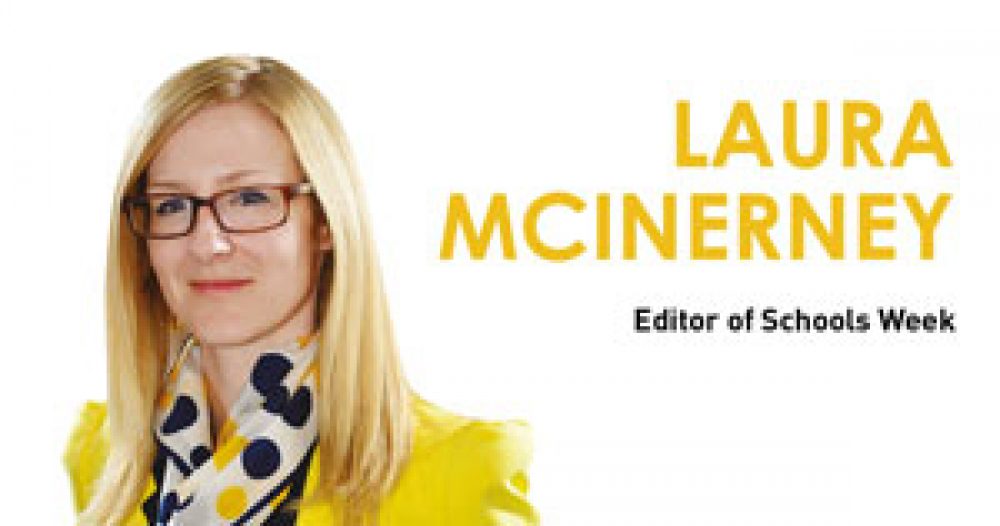In a bid to recover some of the optimism of the 1990s, I’ve been listening to Boyzone this week. (You can judge, I don’t care, they’re great.)
Their 1996 cover of the BeeGee’s Words was a particularly apt soundtrack for something I saw during my daily morning perusal of the Department for Education’s job listings.
The advert was for an administrator to work in the “SEND, Disadvantage and Character Group”, “a newly formed” work division.
I winced. First, the phrase “disadvantage” is irksome. The department uses it as a synonym for “poor”, but that always feels downright rude. Being poor is, indeed, a disadvantage. But so is being rich and having neglectful parents who prefer to stare at their iPads rather than speak to you. Or being a kid in a grammar school area after you’ve failed your 11-plus. Those are disadvantages too, but you can bet no civil servant is being put to resolving them.
And then there’s the throwing-in of special education needs with disadvantage, as if the two are synonymous. More charitably, one might argue that these are both groups that “under-achieve”, except we don’t really know if that’s true. A problem for the special education needs sector is that we have pretty poor data on which to gauge expectations. Ofsted inspection data suggests SEND schools are almost all amazing; but employment outcomes are weak. So, what does that mean? That pupils are under-achieving? Or is it perhaps society that requires improvement?
The inclusion of “character” in the top line makes the whole thing sound like some kind of mini-ministry for the morally corrupt
And then – worst of all – is the inclusion of “character” in the top line, which makes the whole thing sound like some kind of mini-ministry for the morally corrupt.
Robin Gibb’s mellow tones helped to remind me that these are “only words” but, as the song continues, sometimes words are all we have to change people’s hearts. And I couldn’t shake that the label change reflected something of a shift in priorities.
A little digging has proved that hunch correct. It seems this group was previously labelled as the “closing the gap” group. Under the previous prime minister, the focus was on reducing the chasm in educational outcomes between the wealthy and the poor.
This had its own problems. It didn’t recognise the issue of children with special educational needs as a schools’ one. The group was instead always placed in a “children’s services” box and the focus was on health and social services, rather than on improving educational attainment. But it did
make clear that the priority was about gaining an equality between differing groups.
This work now seems to have been split into two. In one division there is a “social mobility group” but, noticeably, it is in a different part of the DfE to the “SEND, Disadvantage and Character group”, as if to suggest that social mobility is for some but not for “you difficult lot” who need a separate group over here.
The shift from gap closures to social mobility is also worth noting. Since taking office Justine Greening has talked relentlessly about social mobility.
But what does it mean? The conception seems to be that given the right amount of help everyone can lift themselves up by their bootstraps. There’s no need to focus on closing the gap, because one might do that by limiting the top, and that’s a bad thing. So instead one ought to give a foot-up for those at the bottom.
The conception seems to be that given the right amount of help everyone can lift themselves up by their bootstraps
But we come back to the constant problem that some groups simply cannot “pull themselves up”, which doesn’t mean education shouldn’t offer support, but I think at the heart of my irksome feelings about the “SEND, disadvantage and character” label is that they seem to create a notion of “the complicated ones who just need a bit of a push”, which is overly simplistic.
In the end, these really are just words. But it strikes me that ministers would do well to consider what their priority really is for this group, and find a way to talk about the three in a way that makes sense. Maybe it could be the “excellent schools for all” group. And it could take seriously the achievement of children with special needs, with actual education policies designed to help these groups. Or how about looking at the truly disadvantaged children whose abilities are already far behind by age 11 and almost never catch up?
Hmmm. I wonder what are my chances of making this change if I was, say, an administrator in the department? I’m sure I’ve still got that application form somewhere…







Your thoughts